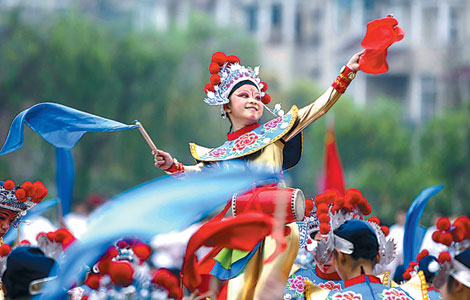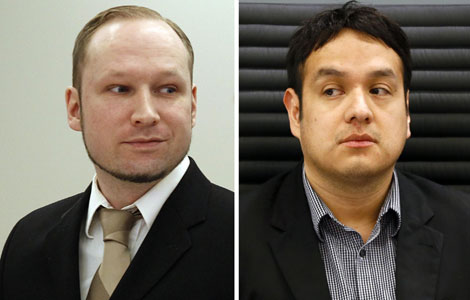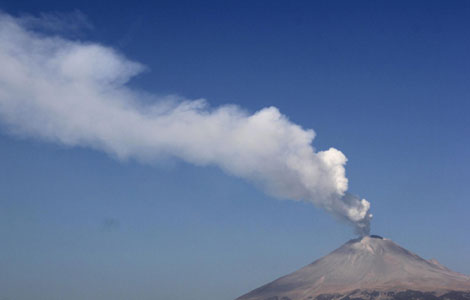 |
|
|
|
|||||||||||
Police will increase patrol staff at the capital airport to deal with increasing disputes between airlines and passengers following severe flight delays, and those who violate laws will be punished accordingly.
On Wednesday, the eastern terminal police station under the Beijing Capital International Airport Public Security Sub-bureau signed a deal with Air China, the country's flag carrier, to establish a mechanism to handle any disputes caused by extensive flight delays.
Similar deals will be signed in the coming days between the airport police department and two other major airlines, China Eastern Airlines and China Southern Airlines, said Wang Min, a spokesman for the sub-bureau.
Under the agreement, when a large number of flight delays are forecast, police stations will send more officers to patrol the airlines' check-in counters, boarding gates and counters for refunding or rescheduling tickets, because these are likely places for disputes to happen.
If crowds gather at the airport terminals, police stations will increase on-duty staff to deal with any emergencies in a timely manner.
Airlines promise to open more counters to effectively deal with ticket refunding and rescheduling, keep passengers informed and placate them.
Unlike the capital airport, Shanghai's two international airports haven't signed such agreements with any airline.
Lu Feng, an officer with the Shanghai Public Security Bureau, said an airport is a high-security site that requires special attention, which is why both Shanghai and Beijing's public security bureaus set up sub-bureaus in the cities' international airports.
"However, maintaining the airport's security is part of our job duties, and the law stipulates very clearly how we should handle airport cases. So in my opinion, there's no need to sign such an agreement," Lu said.
Luo Zhuping, board secretary of China Eastern, agreed and said there are lots of ways to solve problem of flight delays and their consequences. "We could use some moderate approach, rather than strengthen the police force. For example, we could set up an insurance (against flight delays) and at least get some compensation for the passengers. I understand that many insurers have shown interest in the business," said Luo.
The move comes after two groups of angry passengers made their way onto airport tarmacs in Shanghai and Guangzhou last week.
About 20 passengers who protested on the Shanghai Pudong Airport tarmac last Wednesday received 1,000 yuan ($160) each in compensation from Shenzhen Airlines, double its usual standard.
That incident is said to have directly stirred another group of passengers to storm the Guangzhou Baiyun Airport tarmac demanding high compensation on Friday.
Guan Yin, a senior officer at the sub-bureau's eastern terminal police station, said that passengers are finding more ways to vent their anger and demand compensation.
"Nowadays, passengers have a stronger sense of defending their rights but less tolerance than before, which has caused more clashes between them and airports," he said.
And passengers tend to go after the highest compensation amounts ever paid by airlines. "Disputes that could be settled in the past with 200 yuan now need 1,000 yuan," he said.
In addition, dissatisfied, passengers are resorting to violence, he said.
In recent months, angry passengers have attacked two female waitresses in Air China's first-class lounge at the capital airport and five police officers at Shenzhen airport were injured by angry passengers, he said.
The Civil Aviation Administration of China said on Sunday that it is investigating the two incidents.
Industry insiders say they thought the administration will come up with measures to address the rising problems.
Shi Zengxin, a manager with Air China's ground service department, said that the deal signed on Wednesday is the first Air China has signed with police, and it will lead to more cooperation with police at other airports.
Wang Li, a Beijing native, said that to solve the disputes, airlines must have the right attitude and improve service.
"After all, most passengers don't really care that much about compensation. They want faster departures," she said.
Shi Yingying in Shanghai contributed to this story.

|

|

|

|

|

|